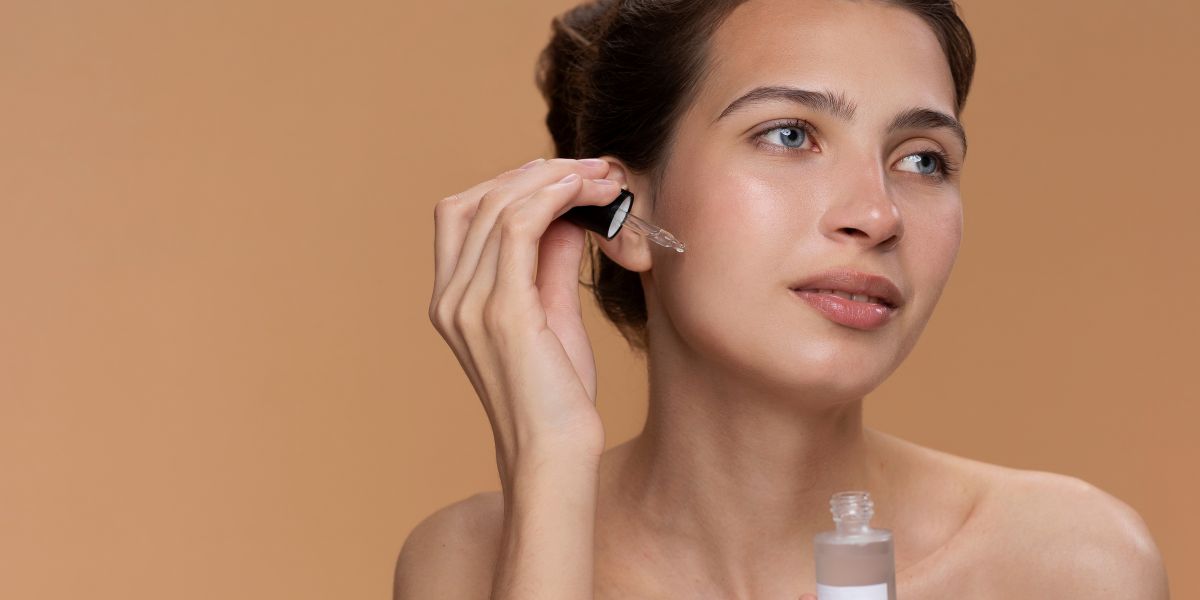Serum brightens your face and minimizes symptoms of aging, so it can completely change the look of your complexion. But the serum can’t give your skin everything it needs. Adhering to a disciplined skincare practice is critical for the best outcomes.
Choosing the appropriate items to pair with your Vitamin C serum can significantly improve the appearance and health of your skin after application.
The Function of Serum Vitamin C
Serum containing vitamin C is well known for its capacity to combat free radicals and promote collagen synthesis. Vitamin C serum targets discoloration, uneven skin tone, and fine wrinkles to help create a more youthful, bright complexion.
However, if you want the most significant effects, it should be incorporated into a more comprehensive skincare regimen that includes moisturizing, shielding, and nourishing your skin.
Hydration Locking in Moisturiser
Why Apply Moisturising Lotion?
It is important to use a moisturizer after applying vitamin C serum. Because serums sometimes contain a high concentration of active substances, the skin may occasionally feel dry.
A quality moisturizer helps to calm the skin, seal in moisture, and provide a barrier that keeps out environmental aggressors.
How to Choose a Moisturiser
Select a moisturiser based on your skin type. For dry skin, select a rich, emollient cream that offers intense hydration. A lighter moisturizer with a gel base can be better for oily or combination skin.
Seek components that support the skin’s natural barrier and aid in moisture retention, such as ceramides, glycerine, and hyaluronic acid.
Sunscreen: Skin Protection
Why Apply Sunscreen?
Although vitamin C is well-known for its antioxidant qualities, it cannot shield your skin from UV rays. Sunscreen is essential because it protects your skin from UVA and UVB radiation, which can cause sun damage and early aging.
By halting the development of new pigmentation and dark patches, sunscreen also contributes to maintaining the effects of vitamin C serum.
Selecting the Appropriate Sunscreen
A broad-spectrum sunscreen with a minimum SPF of 30 should be chosen. Sunscreens with extra antioxidants or moisturizing components boost the protective power of your vitamin C serum.
Remember to slather on sunscreen every morning, even on overcast days or inside, because UV rays can get through the glass.
Face Oils: Increasing Nutrition
Advantages of Oils for the Face
After using a vitamin C serum, face oils can be a great complement to your skincare regimen. They help the skin’s natural healing processes, seal in moisture, and offer extra nutrition. Face oils are beneficial for people with aged or dry skin.
Qualities to Consider in a Face Oil
Pick a face oil with components known for its moisturizing and calming qualities, such as squalane, jojoba oil, or argan oil. Lighter oils that are less likely to clog pores, such as rosehip or marula oil, should also be considered if you have oily or acne-prone skin.
Boosting the Anti-Aging Properties of Retinol
The Functions of Retinol
Retinol, a vitamin A derivative, can improve vitamin C serum’s anti-aging properties. It enhances skin texture, encourages cell turnover, and lessens wrinkles and fine lines. To prevent irritation, it’s crucial to apply retinol as directed.
Safe Retinol Usage
If you’ve never used retinol before, begin by adding it to your evening routine. Use it every other night and progressively increase the amount applied as your skin becomes more tolerant.
To avoid dryness, make sure you moisturize afterward. Because retinol can make your skin more sensitive to sunlight, wear sunscreen at all times during the day.
Skin-Refreshing Hydrating Mist
Advantages of Hydrating Spray
Adding a hydrating mist to your regimen can be very beneficial, particularly if you need a little pick-me-up during the day. It gives the skin an additional layer of moisture and has calming and relaxing properties.
Selecting the Proper Mist
Seek for hydrating mists with glycerine, aloe vera, or rose water among their constituents. These components may aid in skin hydration and soothing. High alcohol concentration mists should be avoided as they might be drying.
Steer Clear of Specific Products
Items to Steer Clear of
When using vitamin C serum, please avoid anything that could irritate your skin or negate its effects. Among them are:
- High-Acidity Products: Avoid using Vitamin C with other acidic products, including beta or alpha hydroxy acids (BHAs), as these may cause discomfort.
- Overly Abrasive Exfoliants: Excessive exfoliation can weaken the skin’s protective layer and reduce the absorption of vitamin C.
To read more blog: The Healing Power of Herbal Salve: A Natural Remedy for Skin Care
Final Thoughts
Adding Vitamin C serum to your skincare regimen is an excellent method to improve the health and brightness of your skin. But to get the most out of it, you must use additional products for protection, nourishment, and hydration afterward.
A comprehensive regimen comprising a high-quality moisturizer, sunscreen, facial oils, and potentially retinol will help maintain the health and radiance of your skin.




